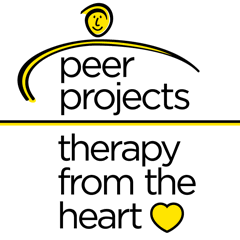Feeding and Swallowing Program
Mealtime is a natural part of every day for children and their families. Early nutrition is the foundation for good growth and nutrition and healthy eating. As infants, feeding is a special time with a child and caregiver. Mealtime is a social component of children’s experiences at home and school. When children experience difficulties with feeding and swallowing skills, mealtime can be a challenge for the family. Our feeding team focuses on supporting the whole child and their family in developing skills for successful and positive mealtimes.
To get a sense of our therapeutic approach, please see this article, written by Sarah, Phoebe and Linda, which discusses the importance of our own communication, as we work to create safety, positive connections, and positive memories within mealtime routines.
What services do we offer?
Evaluation
Individual Treatment
Mealtime Groups
Children discover the joy of eating, and develop skills to support mealtime in a positive peer group experience.
Consultation
Training and support is provided for caregivers at early childhood centers and schools to help children join in mealtime in their natural environment.
Education
In-services on a range of feeding and swallowing topics are offered for individuals looking to learn more.
What populations do we serve?
Our feeding program specializes in treatment of Pediatric Feeding Disorder (PFD) and Avoidant Restrictive Food Intake Disorder (ARFID) for children ages 12 months to adulthood.
Pediatric Feeding Disorder (PFD) is defined as impaired oral intake that is not age-appropriate and is associated with medical, nutritional, feeding skill, and/or psychosocial dysfunction. It is estimated that PFD affects more than 1 in 37 children under the age of 5 in the United States each year. For these infants and children, every bite of food can be painful, scary, or impossible, potentially impeding nutrition, development, growth, and overall well-being (Feeding Matters).
ARFID is a psychiatric based eating or feeding disturbance broken down into three main characteristics including (NEDA):
apparent lack of interest in eating or food
avoidance based on the sensory characteristics of food
concern about aversive consequences of eating, such as choking or vomiting.
ARFID may result in persistent failure to meet nutritional and/or energy needs, and may interfere with psychosocial functioning. As speech-language pathologists, we are not responsible for the diagnosis of ARFID. Our role will be to work with a family and medical team to to help increase a child’s comfort, confidence, and skills as they related to feeding, variety of foods and mealtime.
What does therapy look like?
At Peer Projects, our feeding team utilizes Responsive Feeding Therapy and tenets of the S.O.S. (Sequential Oral Sensory) approach to create a safe, inviting and child-led environment for mealtime therapy. We use a family based , individualized approach, so both your child and all involved caregivers will be welcomed into the therapy process. We offer both in-person and Telehealth services, ranging from bi-weekly to monthly options. No matter where you are in your child or teens feeding journey, we encourage you to reach out for information or to schedule a consultation.
Our Feeding & Swallowing Specialists
-

Phoebe Beard M.S., CF-SLP
Feeding & Swallowing Specialist
-

Sarah Birdsall MS, CCC-SLP
Feeding & Swallowing Specialist
-
Deirdre Mulcahy Patch M.S., CCC-SLP
Feeding & Swallowing Specialist



